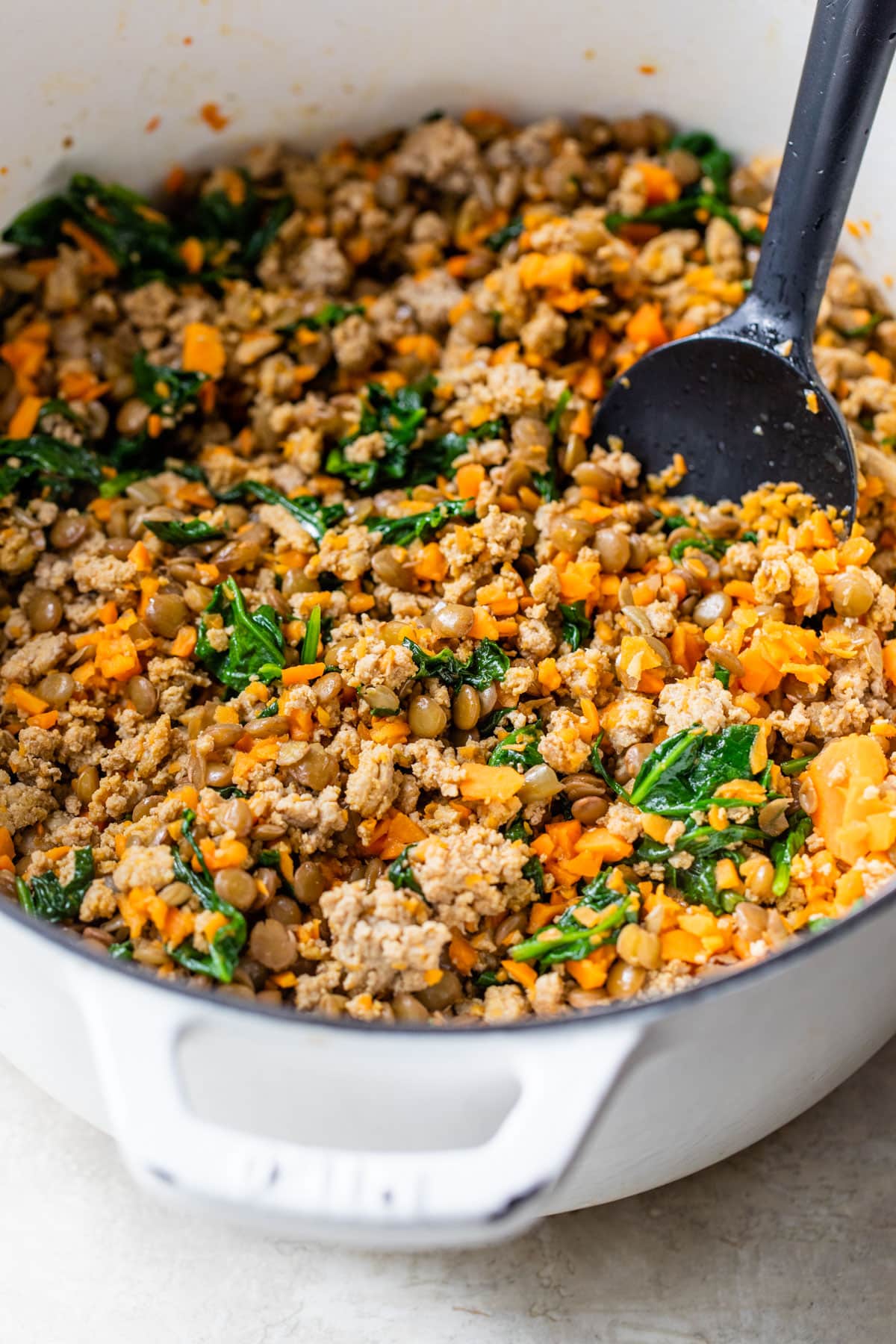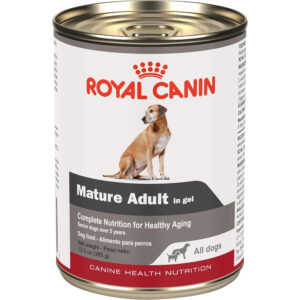Homemade dog food can be a great choice for your furry friend. It allows you to know exactly what goes into their meals.
Choosing the right ingredients is key to making healthy and delicious food for your dog. Many pet owners want to provide the best nutrition possible. With so many options available, it can feel overwhelming. You might wonder what is truly best for your dog's diet.
This guide will help you discover the top ingredients for homemade dog food. We’ll explore nutritious options that promote health and well-being. Your dog deserves meals that are tasty and beneficial. Let’s dive into the best ingredients that will keep your pup happy and healthy.

Credit: southern-bytes.com
Essentials Of Homemade Dog Food
Making homemade dog food can be rewarding. It allows you to control what your dog eats. Using fresh ingredients can improve your dog's health. But, creating a balanced diet is key. This section covers the essentials for homemade dog food.
Nutritional Balance
A balanced diet is crucial for your dog's health. Dogs need proteins, fats, carbohydrates, vitamins, and minerals. Each of these plays a role in their well-being. Here are some important components:
| Ingredient Type | Examples | Benefits |
|---|---|---|
| Proteins | Chicken, beef, fish, eggs | Builds muscles, repairs tissues |
| Fats | Fish oil, flaxseed oil, chicken fat | Provides energy, supports skin health |
| Carbohydrates | Brown rice, sweet potatoes, oats | Provides energy, aids digestion |
| Vitamins | Carrots, spinach, blueberries | Boosts immunity, promotes overall health |
| Minerals | Bone meal, kelp, salt | Supports bone health, balances body functions |
Mix these ingredients in the right proportions. This ensures your dog receives all necessary nutrients.
Consulting With A Vet
Consulting with a vet is very important. They can help create a suitable diet plan for your dog. Every dog has unique needs based on age, size, and health.
- Discuss any allergies your dog may have.
- Ask about specific nutritional needs.
- Get advice on portion sizes.
A vet's guidance can help you avoid common mistakes. They ensure your homemade dog food is safe and nutritious.

Credit: stellanspice.com
Protein Sources Worth Barking For
Protein is essential for your dog's health. It helps build strong muscles and supports overall well-being. Choosing the right protein sources is crucial. Here are some top options that your dog will love.
Lean Meats
Lean meats are a great choice for homemade dog food. They provide high-quality protein with less fat. Here are some lean meats to consider:
- Chicken – A popular choice, packed with protein.
- Turkey – Low in fat and rich in nutrients.
- Beef – Select lean cuts for a nutritious option.
- Pork – Use sparingly; choose lean cuts.
Always cook meat thoroughly. This kills harmful bacteria. Avoid adding seasonings or sauces. Keep it plain for your furry friend.
Eggs And Dairy
Eggs are another excellent protein source. They are full of vitamins and minerals. Here are some benefits:
- High in protein – Great for muscle growth.
- Rich in fatty acids – Supports skin and coat health.
- Easy to digest – Suitable for most dogs.
Dairy can be a good source too. Choose plain yogurt or cottage cheese. Avoid flavored or sweetened products. Some dogs may be lactose intolerant, so watch for any reactions.
Protein is vital for your dog's diet. Lean meats, eggs, and dairy are fantastic choices. They provide the nutrition your dog needs to stay healthy and happy.
Top Grains For Canine Health
Choosing the right grains is important for your dog's health. Grains provide energy and essential nutrients. Here are two excellent grains to consider for homemade dog food.
Brown Rice
Brown rice is a whole grain and a great choice for dogs. It is easy to digest and packed with nutrients. Here are some benefits of brown rice:
- Rich in fiber, which aids digestion.
- Contains vitamins B6 and magnesium.
- Low in fat, making it a healthy option.
- Provides carbohydrates for energy.
Brown rice can help dogs with sensitive stomachs. It is also a good source of energy for active dogs. Always cook it well before serving.
Quinoa Benefits
Quinoa is not a grain but a seed. It is very nutritious for dogs. Here are some of its benefits:
| Benefit | Description |
|---|---|
| Complete Protein | Contains all nine essential amino acids. |
| High in Fiber | Supports healthy digestion. |
| Gluten-Free | Safe for dogs with gluten sensitivities. |
| Rich in Antioxidants | Helps fight inflammation and boosts immunity. |
Quinoa is easy to cook. Rinse it well before cooking to remove saponins, which can be bitter. Serve it in moderation to enjoy its benefits.
Vegetables Dogs Love
Feeding your dog homemade food can be a rewarding experience. Many vegetables are safe and healthy for dogs. Some vegetables are not only safe but also tasty. They provide important nutrients. Here are some vegetables dogs love.
Leafy Greens
Leafy greens are packed with vitamins and minerals. Dogs can enjoy a variety of these greens. Here are some popular options:
- Spinach – Rich in iron and vitamins A, C, and K.
- Kale – Full of antioxidants and fiber.
- Swiss Chard – Contains magnesium and potassium.
- Collard Greens – Great source of vitamins and calcium.
These leafy greens can be chopped and cooked. Always serve them in moderation. Too much can cause stomach upset.
Root Vegetables
Root vegetables are also favorites among dogs. They are nutritious and filling. Here are some root vegetables to consider:
| Vegetable | Benefits |
|---|---|
| Carrots | High in beta-carotene and good for vision. |
| Sweet Potatoes | Rich in fiber and vitamins. |
| Beets | Support healthy blood flow and digestion. |
| Turnips | Low in calories and high in nutrients. |
These root veggies can be boiled or roasted. Avoid adding any seasoning. Keep it simple for your dog’s health.
Fruits For A Sweet Treat
Fruits make a tasty and healthy treat for dogs. They add natural sweetness to homemade dog food. Many fruits provide essential vitamins and minerals. They can also boost your dog's immune system. Here are some great fruits to include in your dog’s diet.
Berries And Antioxidants
Berries are a fantastic choice for dogs. They are low in calories and high in nutrients. Here are some benefits of berries:
- Blueberries: Rich in vitamins C and K.
- Strawberries: Contain fiber and antioxidants.
- Raspberries: Great for heart health.
- Blackberries: Help with digestion.
Berries also have antioxidants. Antioxidants fight free radicals. This helps keep your dog healthy. Serve them fresh, or mix them into homemade dog food.
Safe Citrus Options
Citrus fruits can be a refreshing treat. Not all citrus fruits are safe for dogs. Here are safe options:
| Fruit | Benefits |
|---|---|
| Oranges | Rich in vitamin C and fiber. |
| Grapefruits | High in antioxidants; use with caution. |
| Lemons | Use in small amounts; too much can upset stomach. |
Always remove seeds and peel. Too much citrus can cause stomach issues. Offer citrus fruits in moderation.
Healthy Fats And Oils
Healthy fats and oils are essential for your dog’s diet. They provide energy and support a shiny coat. Fats help with nutrient absorption and improve overall health. Choosing the right fats is important for your furry friend.
Omega-3 Sources
Omega-3 fatty acids are vital for your dog's health. They reduce inflammation and support heart health. Here are some great sources:
- Fish oil: Rich in EPA and DHA.
- Flaxseed oil: Contains alpha-linolenic acid (ALA).
- Chia seeds: Packed with Omega-3s and fiber.
- Walnuts: Good source of Omega-3 for dogs.
These sources can be mixed into homemade dog food. Always consult your vet for the right amounts.
Cooking With Oils
Using oils in homemade dog food adds flavor and nutrition. Here are some healthy options:
| Oil | Benefits |
|---|---|
| Olive oil | Rich in antioxidants and good for skin. |
| Coconut oil | Boosts energy and helps with digestion. |
| Canola oil | Low in saturated fat, promotes heart health. |
Use oils in moderation. A little goes a long way. Always choose high-quality oils. This ensures your dog gets the best nutrition.
Supplements For A Nutritional Boost
Homemade dog food can be healthy and tasty. To make it even better, add supplements. These help fill in any gaps in nutrition. Your dog will enjoy better health and energy. Here are some key supplements to consider.
Probiotics And Digestion
Probiotics are good bacteria. They help your dog digest food better. Probiotics can:
- Improve gut health
- Boost the immune system
- Reduce gas and bloating
Common sources of probiotics include:
| Probiotic Source | Benefits |
|---|---|
| Yogurt | Contains live cultures |
| Kefir | Rich in beneficial bacteria |
| Pumpkin | Supports digestion |
Adding probiotics to your dog's food can help them feel their best.
Vitamins And Minerals
Vitamins and minerals are essential for your dog's health. They support various functions in the body. Key vitamins include:
- Vitamin A – Good for vision and skin.
- Vitamin D – Supports bone health.
- Vitamin E – Acts as an antioxidant.
Minerals are also important. Here are some vital ones:
- Calcium – Strengthens bones and teeth.
- Iron – Helps with red blood cell production.
- Potassium – Regulates fluid balance.
Consider using a high-quality multivitamin. This can help ensure your dog gets what they need. Always consult your vet before adding new supplements.

Credit: thealmondeater.com
Hydration And Fluids
Keeping your dog hydrated is key to their health. Proper hydration helps with digestion, circulation, and temperature regulation. Homemade dog food should include enough fluids to support your dog’s needs. Let’s explore two main ways to ensure your furry friend stays hydrated.
Water Intake
Water is essential for all living beings. Dogs need fresh water daily. Here are some tips to encourage water intake:
- Always provide fresh, clean water.
- Change the water regularly.
- Use a water bowl that is easy to access.
- Consider a pet water fountain for fun.
Monitor your dog's water intake. A healthy dog drinks about 1 ounce of water per pound of body weight each day. If your dog is active or hot, they may need more.
Homemade Broths
Homemade broths are a tasty way to boost hydration. They add flavor and nutrients to your dog’s meals. Here’s how to make simple broths:
- Choose your base: chicken, beef, or vegetable.
- Add water and simmer for several hours.
- Strain the broth to remove solids.
- Let it cool before serving.
Broths can be mixed with dry food. This makes it more appealing. Here’s a quick table of easy broth recipes:
| Broth Type | Main Ingredients | Cooking Time |
|---|---|---|
| Chicken Broth | Chicken bones, water, carrots | 3-4 hours |
| Beef Broth | Beef bones, water, celery | 4-6 hours |
| Vegetable Broth | Carrots, celery, potatoes, water | 2-3 hours |
Using broths not only keeps your dog hydrated but also adds nutrients. Experiment with different flavors. Your dog will love it!
Avoiding Toxic Ingredients
Making homemade dog food is great for your pet. It's important to avoid toxic ingredients. Some foods are safe for humans but harmful to dogs. Knowing which ingredients to avoid keeps your dog healthy.
Common Household Dangers
Many common foods are dangerous for dogs. Here are some of the top ingredients to avoid:
- Chocolate – Contains theobromine, toxic to dogs.
- Onions – Can damage dogs' red blood cells.
- Garlic – Similar to onions, can be harmful.
- Grapes – May cause kidney failure.
- Raisins – Like grapes, can be very toxic.
- Xylitol – Found in sugar-free products, can cause hypoglycemia.
Reading Labels Carefully
Always read labels on ingredients. Some products may contain harmful additives. Look for these red flags:
| Ingredient | Why It's Harmful |
|---|---|
| Artificial Sweeteners | Can cause a dangerous drop in blood sugar. |
| Preservatives | Some can be toxic to dogs. |
| Meat by-products | May include parts not safe for dogs. |
| High salt content | Can lead to sodium ion poisoning. |
Choose whole, natural ingredients. Look for fresh meats, vegetables, and grains. Avoid anything with artificial flavors or colors.
Sample Homemade Dog Food Recipes
Creating homemade dog food is simple and rewarding. You control what goes into your dog's meals. This ensures your dog gets the best nutrition. Below are some easy recipes. They include balanced meals and options for special diets.
Balanced Meal Plans
Balanced meals are important for your dog’s health. Here are two sample recipes that provide a mix of proteins, carbs, and vegetables.
| Recipe Name | Ingredients | Instructions |
|---|---|---|
| Chicken and Rice |
|
|
| Beef and Sweet Potato |
|
|
Special Diet Options
Some dogs need special diets. Here are recipes for dogs with specific needs.
- Grain-Free Turkey Stew:
Use ground turkey, carrots, and zucchini. No grains added.
- Low-Fat Fish Meal:
Use white fish, sweet potatoes, and green beans. Great for weight management.
- Vegetarian Option:
Mix lentils, quinoa, carrots, and spinach. Ensure it meets protein needs.
Always consult a vet before changing your dog’s diet. Homemade meals can help your dog thrive.
Frequently Asked Questions
What Are The Best Proteins For Homemade Dog Food?
The best proteins for homemade dog food include chicken, turkey, beef, and fish. These meats provide essential amino acids that support your dog’s growth and overall health. Always ensure the meat is lean and cooked thoroughly. This helps eliminate harmful bacteria and makes it easier for your dog to digest.
How Can I Balance Homemade Dog Food Nutrients?
To balance nutrients in homemade dog food, include proteins, carbohydrates, and healthy fats. Incorporate vegetables like carrots and spinach for vitamins. Additionally, consider adding supplements if needed. Consulting with a veterinarian can also help ensure your dog's specific dietary needs are met.
A balanced diet promotes better health and vitality.
Are Grains Good For Homemade Dog Food?
Grains can be beneficial in homemade dog food but should be chosen wisely. Options like brown rice and oats provide fiber and energy. However, some dogs may have grain sensitivities. Always observe your dog's reaction to new ingredients and consult a vet for guidance on grain inclusion.
What Vegetables Should I Use In Dog Food?
Great vegetables for homemade dog food include carrots, peas, and sweet potatoes. These provide essential vitamins, minerals, and fiber. Ensure they are cooked and chopped into small pieces for easy digestion. Avoid onions and garlic, as they can be toxic to dogs.
Variety in vegetables supports a well-rounded diet.
Conclusion
Feeding your dog homemade food can be rewarding. It allows you to control ingredients and ensure quality. Focus on fresh, whole foods for balanced nutrition. Include proteins, grains, and vegetables in their meals. Always consult with a vet before making changes.
They can help tailor recipes to your dog’s needs. Happy cooking! Your dog will appreciate the love and care you put into their food. Enjoy the journey of creating delicious meals together.













